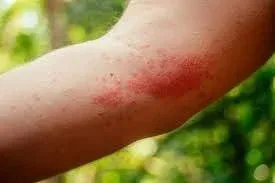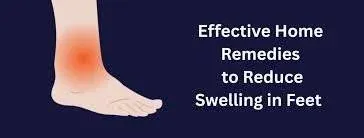Staying hydrated is one of the simplest yet most overlooked habits for maintaining health. While everyone knows water is essential for survival, confusion often arises about how much we should drink daily. Some people carry giant bottles, while others sip occasionally, assuming coffee or juice will do the job. The truth lies somewhere in between, and understanding hydration can make a world of difference to energy, focus, and overall wellness. Let’s explore practical hydration hacks and uncover how much water you really need.
Why Hydration Matters
Water is involved in nearly every process in the human body. It regulates body temperature, helps transport nutrients, flushes out toxins, supports digestion, and even cushions joints. Without adequate hydration, fatigue sets in quickly, concentration drops, and the risk of headaches increases. Over time, chronic dehydration may also affect kidney function and skin health. In short, water isn’t just a thirst quencher it is a foundation of well-being.
How Much Water Do You Really Need?
One of the most common recommendations is the “8×8 rule” eight 8 ounce glasses a day, which equals about two liters. However, experts argue that hydration needs are not one size fits all. They vary depending on age, weight, climate, activity level, and overall health.
According to the U.S. National Academies of Sciences, Engineering, and Medicine, the general guidelines are:
Men: About 3.7 liters (125 ounces) per day
Women: About 2.7 liters (91 ounces) per day
This includes not just water but also fluids from food and beverages. Fruits, vegetables, and even soups contribute to hydration. For example, cucumbers and watermelon are more than 90% water, making them excellent snack options to stay refreshed.
Signs You’re Not Drinking Enough
Many people underestimate their dehydration levels until symptoms appear. Watch out for these common signs:
Constant fatigue or lack of energy
Dark yellow urine or reduced urination
Dry mouth or cracked lips
Headaches and dizziness
Difficulty concentrating
Addressing these warning signals quickly can prevent health complications and restore your body’s balance.
Smart Hydration Hacks for Daily Life
Knowing how much water you need is one thing, but making hydration a habit is another. These hydration hacks can help you stay on track effortlessly:
Start Your Morning with a Glass of Water
Replenish lost fluids immediately after waking up. This simple habit kickstarts digestion and metabolism.Set Reminders on Your Phone or Smartwatch
Small nudges every hour make it easier to build consistency.Flavor Your Water Naturally
Add slices of lemon, cucumber, or berries to make drinking water enjoyable without sugar.Use a Marked Water Bottle
Bottles with time markers keep you accountable throughout the day.Hydrate Before Meals
Drinking a glass of water before eating can aid digestion and help control appetite.Eat Water Rich Foods
Incorporate fruits like oranges, strawberries, and vegetables like lettuce or zucchini into your meals.Replace Sugary Drinks with Water
Cutting down on sodas and packaged juices not only keeps you hydrated but also reduces calorie intake.
Special Considerations for Different Lifestyles
Not everyone’s hydration needs are the same. Here’s how daily routines affect requirements:
Athletes or Active Individuals: Extra hydration is needed to replace fluids lost through sweat. Electrolyte-rich drinks may be useful after intense workouts.
Hot Climates: People living in warm or humid environments should drink more than the average recommendation.
Pregnant or Breastfeeding Women: Fluid needs increase to support both mother and baby.
Office Workers: Sitting for long hours often reduces the natural urge to drink water, so intentional reminders are helpful.
Myths About Hydration
With so much information online, it’s easy to believe myths about water consumption. Let’s bust a few common ones:
Myth 1: Only plain water counts.
Reality: Tea, coffee, milk, and even water-rich foods contribute to hydration, though water remains the healthiest option.Myth 2: More is always better.
Reality: Drinking excessive water in a short period can cause hyponatremia (low sodium levels), which is dangerous. Balance is key.Myth 3: You’re not dehydrated if you’re not thirsty.
Reality: By the time you feel thirsty, dehydration has already started. Preventive drinking is smarter.
Hydration and Mental Performance
Beyond physical health, hydration strongly influences mental clarity. Dehydration as low as 2% of body weight can impair memory, attention, and mood. Students, professionals, and anyone who needs to stay sharp should prioritize regular sips of water during study or work sessions. Keeping a glass within reach while working can improve focus more than you realize.
Evening and Bedtime Hydration
While hydration is important throughout the day, drinking too much water right before bed may interrupt sleep with frequent bathroom trips. Instead, spread your intake evenly, reducing slightly in the last two hours before bedtime. This ensures balance without disturbing your rest.
Final Thoughts
Water may be simple, but its impact on health is profound. Staying hydrated boosts energy, sharpens focus, improves skin, and enhances overall well-being. The right amount depends on your body’s needs, lifestyle, and environment, but small daily habits make a big difference. With these hydration hacks, you no longer have to guess how much water you really need. Instead, you can take charge of your health one sip at a time.





